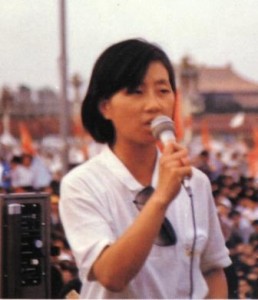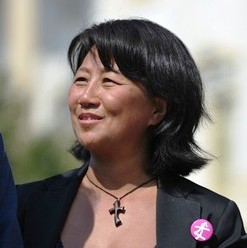In my post of June 19, 2014, I began to look at I Peter 3:15, for insight into how to respond to the persecution we receive because of our faith. Depending where we are in the world, and who is doing the persecuting, the challenges we face because of our faith can vary widely, but our response should always be the same. In my last post, I discussed the first and most important part of that response which is to turn to God. No matter what we face, we should always turn to God first for the answers.
The second half of I Peter 3:15, along with I Peter 3:16 give us the second part of our action plan. I’m afraid that many of us don’t do this part very well either, and I pray that as you read this you will really consider how to implement it in your own situations. The instruction in the rest of the passage is to always be ready to explain why we believe as we do, and to do it with courtesy and respect so that there is no basis for any accusations against us.
Let’s break it down piece by piece.
Always be ready to give an answer:
Be prepared. Think about it now, so that when you are asked, you have the words to express what you really want to express. Why do you believe as you do? Anticipate the questions that someone might ask, and have your answer ready.
To anyone who asks:
Do you understand the implication of this phrase? We should be living in a way that makes others realize that we are different, and makes them wonder why. When they wonder, eventually, when they feel comfortable in their relationship with us, they will ask. Why do you do this? Why don’t you do that? Why don’t you get angry? Why don’t you get revenge? The things that you do or don’t do that are different from the way the world does them, that’s what you need to prepare your answers about.
About the hope you possess:
Ultimately, the reason for your specific actions and reactions is the hope that you have in God, the confident expectation we have that God will fulfill His promises to us. We need to be ready to explain Christianity in general, but specifically the assurance we have that Christ is able and willing to return and to provide us with eternal life.
Yet do it with courtesy and respect:
It is not our job to bully the bullies. We should not yell and scream nor be rude, sarcastic or offensive. We certainly shouldn’t be physically attacking anyone. If possible, so far as it depends on you, live at peace with all people. (Romans 12:18) It is not our job to change their minds about God, only to give an answer for why we believe. It is the Holy Spirit who will change their hearts when the time is right. Look at what happened to Saul, the persecutor, in Acts 9:1-9. God has the power to redeem.
Keeping a good conscience, so that those who slander your good conduct in Christ may be put to shame when they accuse you:
In Romans 12:17, just before the verse about doing everything you can to live at peace with everyone, Paul tells us not to repay evil for evil. No matter what someone else does, it is your responsibility to make sure that your actions are right. In the end we will all have to answer to God. We want to be righteous as we stand before Him on the day of judgement. (II Peter 2:9)
I do not want to discourage you from taking up the fight against injustice or the persecution of our brothers and sisters in Christ. In fact, I want to encourage you to do so. But please, be careful of your words and your actions. Rely on Christ, put Him first in your life, and always strive to please Him. The best way to do that is to love Him and to love others. (Matthew 22:37-39)



